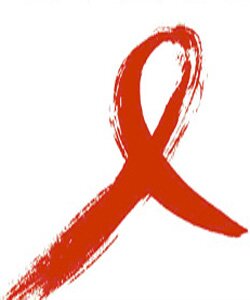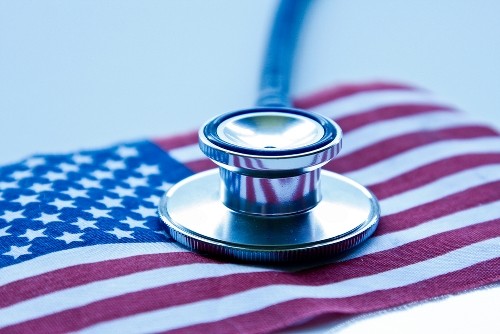Wellness
What a Beautiful Farmer’s Tan … Said No One Ever!
April 26, 2013 | Joshua LadnerSpring is in full effect and summer is just around the corner, let’s make sure we take caution when out in the sun. Try these products to ensure your skin stays protected from sunburns, UV rays and dry skin.
Your Dieting Super Computer
March 28, 2013 | OutServeMagBY STEVE SNYDER-HILL, MS, RD, LD
Everyone gets so caught up in how to count or budget when dieting. Let me be clear, there is no gray area here; this is very simple and it’s easy. As I talked about in “Your Survival Machine: An Owner’s Manual to Your Body,” in the Jan/Feb issue of OutServe Magazine, you should operate on a food budget. Most people understand the concept of this, but get caught up in sophisticated manuals, books, internet sites, apps for their phone…but it is very simple. Read More
Your Survival Machine
February 6, 2013 | OutServeMag CommentsIf I could create a pill that would solve the world’s problems, I would be a millionaire. By problems, I mean the fact that we are the heaviest we have ever been as a country. The funny thing, there is a pill already created.Read More
Military Reverses Course on HIV+ People Serving Overseas
November 19, 2012 | Katie Miller CommentsNavy Releases Major Updates to Service Member HIV Policy
By Katie Miller
This past year, the United States hosted the 19th International AIDS Conference for the first time since 1990. Although the United States has established itself as a global leader in HIV/AIDS research and funding, it wasn’t until 2010 that the government lifted the entry ban on HIV positive people wishing to travel to America, thereby making the International AIDS Conference possible in this country. Before then, the United States stood out as one of only a handful of countries worldwide that barred people living with HIV from visiting or immigrating to the country.
Military Healthcare Needs Reform
August 21, 2012 | OutServeMag CommentsBy Paula M. Neira RN, CEN, Esq.
 Next month we celebrate the first anniversary of the end of “Don’t Ask, Don’t Tell” (DADT). Amidst the joy, one group of patriots has nothing to celebrate. Transgender Americans remain unwanted warriors. Our military medical regulations pertaining to transgender individuals, written almost a half-century ago Read More
Next month we celebrate the first anniversary of the end of “Don’t Ask, Don’t Tell” (DADT). Amidst the joy, one group of patriots has nothing to celebrate. Transgender Americans remain unwanted warriors. Our military medical regulations pertaining to transgender individuals, written almost a half-century ago Read More
Your Health: Tips & Truth about HIV
July 27, 2012 | OutServeMag“Many service members are surprised to learn that HIV infection is a problem in the military … While infection rates in the military remain lower than in the U.S. population at large, we do have new cases of HIV infection every year.” Read More
Attitudes on HIV
July 18, 2012 | David SmallSensationalism of Progress Toward Curing HIV Causes Unsafe Sex Practice
By David Small
 I’m 36 years old. I’m between a generation who were adults living through the 1980s AIDS crisis, who can count the number of friends they lost to the disease in the dozens, and a generation who is, by my counts—apathetic at the most, and nonchalant at best about safe sexual practices. The disappearance of fear in our youth over contracting HIV scares me.
I’m 36 years old. I’m between a generation who were adults living through the 1980s AIDS crisis, who can count the number of friends they lost to the disease in the dozens, and a generation who is, by my counts—apathetic at the most, and nonchalant at best about safe sexual practices. The disappearance of fear in our youth over contracting HIV scares me.
And today I see the USA Today headline, “The AIDS epidemic: Beginning of the end?”
As a professional communicator, I’m appalled by editors who sensationalize a story down into a few words in a grabbing headline like this. Because one message I got from reading the complete story is that people, a lot of people, particularly in young minority groups, evermore are contracting the virus at astounding rates.
How can such a statistic contribute to such a headline?
While I applaud the fact that in general, society no longer treats HIV+ people as pariahs, I think our collective progress toward understanding that you can’t contract HIV from simple contact has provided a slippery slope fueled by the media stating it is no longer a death sentence. That slippery slope seems to have spawned an entire generation of people who don’t seem to be taking precautions.
Here are some pertinent excerpts from the article that are completely buried under scientific hullabaloo that doctors can now practically cure the disease. You can practically cure it? Well, hell… if you can practically cure it anyway, then why do I have to wear a jimmy hat? That’s what some kid out there is thinking now because of this article.
- In communities with high infection rates, people can be at risk even without being promiscuous, simply because the virus is found at such high rates within their social network, says Justin Goforth, a registered nurse at Whitman Walker Health in Washington. In these communities, staying HIV-free requires “perfection,” Goforth says, or at least 100 percent condom use.
- Young gay men — who don’t remember when AIDS was a universal death sentence — are the only group in which the rate of new infections is increasing, largely due to an “alarming” growth in the disease among gay black youths. The HIV infection rate climbed 48 percent among young gay black men from 2003 to 2009, according to the CDC.
- Many young people are unaware or in denial of the dangers of unprotected sex, which HIV patient Kevin Swinton compares to “Russian roulette.” Other young people are fatalistic, he says. Convinced that they’ll eventually contract HIV anyway, they decide to have fun while they can, says Swinton, 36, of Silver Spring, Md. “I knew the risk was out there,” Swinton says. “D.C. is small enough that eventually, everybody sleeps with everybody.”
The USA Today article blames such attitudes by our youth today on lack of sex education and lack of access to health care. That may be spot on, particularly for those who are poor and disenfranchised. But a third factor ought to be with the media and medical community who recite low statistics for certain activities. Read More
Me, the ACA and Transgender Coverage
July 7, 2012 | Brynn Tannehill Commentsby Brynn Tannehill
 As I transitioned, health care coverage has truly been a trip through the looking glass. When I started the process, I worked for a company which had health benefits that extended to same sex partners. It also covered many transition related expenses such as labs for hormone levels, Gender Identity Disorder (GID) related doctor and therapist visits, surgeries related to a sex change, and hormone therapy.
As I transitioned, health care coverage has truly been a trip through the looking glass. When I started the process, I worked for a company which had health benefits that extended to same sex partners. It also covered many transition related expenses such as labs for hormone levels, Gender Identity Disorder (GID) related doctor and therapist visits, surgeries related to a sex change, and hormone therapy.
However, my luck ran out at about the same time I fully transitioned. The next company I went to did not offer any benefits to same sex partners. It will not cover any GID related medical coverage. This has led to some very odd work-arounds to ensure my family has benefits. My driver’s license, passport, DEERS information, CAC card, and company records say I am female. All of my wife’s documentation says she is female. However, I had to prove my marriage is NOT same-sex by providing a joint 1040 form and my Florida marriage license to the benefits department. At my doctor’s office, they are re-coding my records as female so they can use non-GID related codes for my appointments, labs, and prescriptions for hormones.
In other words, I have to be legally both male and female at any given time, depending on who is looking at that moment.
Debating the Need to Change Blood Donation Rules
May 24, 2012 | David SmallBy David Small
 Below is a Facebook conversation sparked by the USA Today article “Federal Policy Blocks Many Gay Men from Blood Donation.” The conversation debates the decades-old rule banning men who have sex with men to donate blood products to the nation’s supplies. The conversation begs the question whether the ban is a form of discrimination, a form of sound risk management, or a lazy federal regulation that could be improved through better testing of the blood supply.
Below is a Facebook conversation sparked by the USA Today article “Federal Policy Blocks Many Gay Men from Blood Donation.” The conversation debates the decades-old rule banning men who have sex with men to donate blood products to the nation’s supplies. The conversation begs the question whether the ban is a form of discrimination, a form of sound risk management, or a lazy federal regulation that could be improved through better testing of the blood supply.
B: “Did you know that men who have sex with other men are banned by the FDA from donating blood? Have anal sex just once, and you’re banned for life. Seems we still have a long way to go on the equality front…”
S: “That’s been around since the early 80s. Same rule for people with tattoos. Higher risk populations shouldn’t give blood if the blood people won’t properly screen it.” Read More
LGBT Healthcare
March 29, 2012 | David Small Comments“As the era of DADT fades into history, it is expected that lost health care will diminish. However, the ability of providing specialized health care for LGBT people in the military is currently sparse. After the Comprehensive Review Working Group issued its implementation plan for the repeal of DADT, no DoD medical policy changed.”Read More













